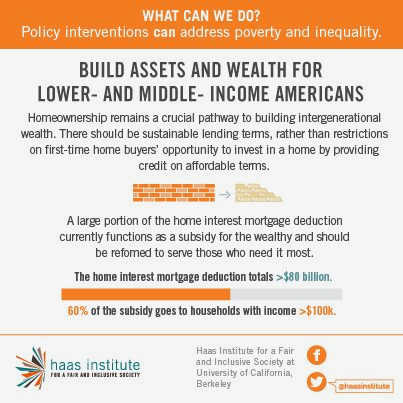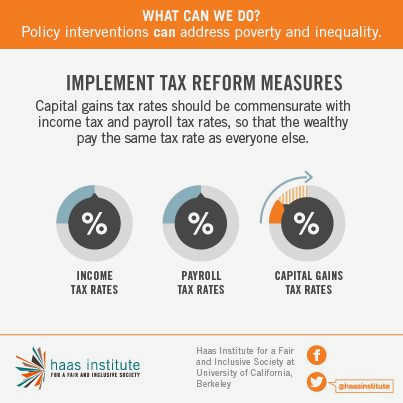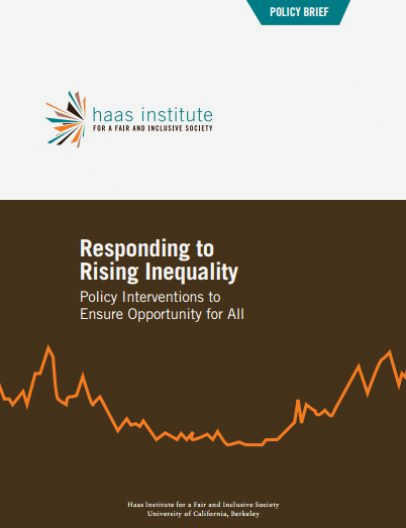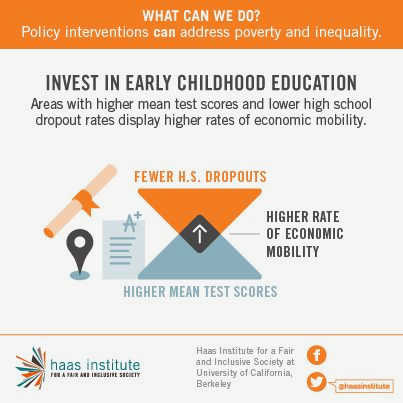The issue of income inequality has become a pressing concern in many societies around the world. The gap between the rich and the poor has been widening, leading to social unrest and economic instability. In order to create a fairer society, it is important to develop strategies that address this issue and promote a more equitable distribution of wealth.
One crucial aspect of tackling income inequality is the role that civil society can play in influencing economic policy. Civil society encompasses a wide range of non-governmental organizations, community groups, and individuals who are actively engaged in promoting social change and advocating for the rights and interests of marginalized populations. These organizations and individuals have the power to shape public opinion, influence policy-making processes, and hold elected officials accountable for their actions.
One strategy that civil society can employ is raising awareness about the impacts of income inequality on individuals and society as a whole. Through public education campaigns and media advocacy, civil society organizations can draw attention to the disparities in income and wealth distribution, highlighting the negative consequences that it has on social cohesion, economic growth, and political stability. By emphasizing the human stories behind the statistics, civil society can generate public support for policies that address income inequality.
Another important strategy is advocating for policy changes that promote a more equitable distribution of wealth. Civil society organizations can conduct research, propose policy alternatives, and engage with policymakers to ensure that the needs of marginalized communities are taken into account. By partnering with like-minded organizations and coalitions, civil society can amplify its impact and put pressure on governments to adopt progressive policies, such as progressive taxation, increased social spending, and investment in education and skills training programs.
In conclusion, income inequality is a complex issue that requires concerted efforts from various actors in society. Civil society plays a critical role in influencing economic policy and promoting a fairer distribution of wealth. By raising awareness, advocating for policy changes, and mobilizing public support, civil society can contribute to creating a more equitable and inclusive society for all.
Income Inequality
Income inequality refers to the unequal distribution of income among individuals or households in a society. It is often measured using indicators such as the Gini coefficient, which calculates the degree of inequality within a given population. Income inequality is a significant social and economic issue, with wide-ranging implications for individuals and communities.
Causes
Income inequality can be attributed to various factors, including differences in education, skills, and opportunities. Unequal access to quality education can perpetuate income disparities, as individuals from lower-income backgrounds may have fewer opportunities to acquire the skills necessary for higher-paying jobs. Additionally, discrimination, globalization, technological advancements, and changes in the labor market can all contribute to income inequality.
Consequences
Income inequality can have far-reaching consequences for society. It can lead to social unrest, as individuals feel unfairly treated and excluded from economic opportunities. It can also hinder economic growth, as it limits the purchasing power of lower-income individuals, who are more likely to spend a larger proportion of their income. Furthermore, income inequality can exacerbate social inequalities and create an uneven distribution of resources, such as healthcare, education, and housing.
Addressing Income Inequality
There are various strategies that can be employed to address income inequality. These include implementing progressive taxation policies, increasing the minimum wage, and providing targeted social welfare programs. Enhancing access to quality education and job training initiatives can also help to reduce income disparities. Civil society plays a crucial role in influencing economic policy and advocating for measures that promote a fairer distribution of income.
Conclusion
Income inequality is a complex and multifaceted issue that requires a comprehensive approach. By addressing the root causes and implementing targeted interventions, society can work towards a fairer distribution of income. Through the efforts of civil society organizations and the implementation of effective policies, it is possible to create a more equitable and inclusive society for all.
Understanding the Problem
Income inequality refers to the unequal distribution of income among individuals and households within a society. It is a complex issue that can have wide-ranging social and economic consequences. In recent decades, income inequality has been on the rise in many countries, leading to increased poverty, social unrest, and political instability.
One of the key factors contributing to income inequality is the concentration of wealth in the hands of a small elite. This can be attributed to various factors, including globalization, technological advancements, and changes in labor markets. The rich have benefited greatly from these developments, while many workers have seen their wages stagnate or decline.
Another contributing factor is the lack of access to quality education and employment opportunities. Individuals from disadvantaged backgrounds often face barriers that prevent them from accessing the same resources and opportunities as their wealthier counterparts. This perpetuates a cycle of poverty and inequality.
Income inequality also has wide-ranging social implications. It can lead to increased crime rates, decreased social mobility, and a decline in social cohesion. Studies have shown that societies with high levels of income inequality tend to have higher rates of mental health issues, drug abuse, and social unrest.

To address income inequality, it is important to understand its root causes and implement policies that promote a fair distribution of wealth and opportunities. This requires not only government intervention but also the active involvement of civil society organizations, grassroots movements, and individuals committed to social justice.
The Role of Civil Society
Civil society plays a crucial role in influencing economic policy and advocating for a fairer society. It serves as a bridge between the government and the citizens, representing the interests and concerns of the people. Through various forms of activism, advocacy, and community engagement, civil society organizations can push for policies that reduce income inequality and promote economic justice.
One important role of civil society is to raise awareness about the issues surrounding income inequality. By organizing public campaigns, conducting research, and disseminating information, civil society organizations can educate the public about the root causes of income inequality and the consequences it has on society as a whole. This awareness-raising is crucial in mobilizing public support for policy changes and creating a sense of urgency around the issue.
Civil society organizations also play a role in holding the government accountable for its economic policies. Through monitoring, reporting, and advocacy, these organizations can shed light on policies that perpetuate income inequality and push for changes that promote fairness and equality. By voicing the concerns of the marginalized and vulnerable communities, civil society can challenge and shape economic policies to ensure they benefit all members of society.
In addition, civil society can play a vital role in providing services and support to the individuals and communities affected by income inequality. Through programs and initiatives focused on education, healthcare, job training, and social welfare, civil society organizations can help alleviate the immediate effects of income inequality and empower individuals to overcome the barriers they face. By providing these services, civil society contributes to the overall well-being and social mobility of those who are marginalized or disadvantaged.
Furthermore, civil society organizations can facilitate dialogue and collaboration between different stakeholders, including government, businesses, and communities, to find collective solutions to income inequality. By bringing together diverse perspectives and expertise, civil society can help bridge the gaps and facilitate meaningful discussions that lead to innovative and equitable policy solutions. This collaborative approach ensures that a wide range of voices and interests are considered in the decision-making process.
In summary, civil society plays a crucial role in advocating for a fairer society and influencing economic policy. Through raising awareness, holding the government accountable, providing services, and facilitating dialogue, civil society organizations contribute to creating a more equitable and inclusive society where income inequality is addressed and economic opportunities are accessible to all.
Advocacy for Economic Policy Reforms
Advocacy for economic policy reforms plays a crucial role in promoting a fairer society and addressing income inequality. Civil society organizations and individuals have the power to influence economic policy by voicing their concerns and advocating for change. They can engage in various advocacy strategies to push for reforms that promote equitable distribution of income and wealth.
Research and Analysis: Civil society organizations can conduct research and analysis to gather evidence on the impact of existing economic policies on income inequality. They can collect data, conduct surveys, and analyze trends to highlight the disparities and inequalities that persist in society. This research can be used to support their advocacy efforts and provide concrete evidence to policymakers.
Engagement and Participation: Civil society organizations can engage with policymakers, government officials, and other stakeholders to actively participate in the policymaking process. By attending meetings, submitting policy recommendations, and participating in public consultations, they can influence decision-making and ensure that the voices of marginalized groups are heard. This engagement can help shape economic policies that address income inequality.
Communication and Awareness: Advocacy for economic policy reforms also involves raising awareness about income inequality and its consequences. Civil society organizations can use various communication channels, such as social media, public campaigns, and community events, to educate the public and mobilize support for policy changes. By disseminating information and creating public discourse, they can build momentum for reform.
Coalition Building: To increase their impact, civil society organizations can collaborate and form coalitions with other like-minded organizations. By pooling their resources and expertise, they can strengthen their advocacy efforts and amplify their messages. Coalition building allows for a collective voice and enhances the chances of creating meaningful change.

Monitoring and Evaluation: Civil society organizations can also play a crucial role in monitoring the implementation of economic policies and evaluating their impact on income inequality. By holding policymakers accountable and highlighting any shortcomings or unintended consequences, they can advocate for necessary adjustments and improvements.
Overall, advocacy for economic policy reforms by civil society is instrumental in promoting a fairer society and reducing income inequality. Through research, engagement, communication, coalition building, and monitoring, civil society organizations can actively contribute to shaping economic policies that prioritize equity and social justice.
Education and Awareness Campaigns
1. Promoting economic literacy
Education and awareness campaigns play a crucial role in addressing income inequality. One important aspect is promoting economic literacy among the general public. By increasing people’s understanding of economic concepts, such as the factors contributing to income inequality and the impact of economic policies, individuals will be empowered to advocate for fairer economic policies and demand greater accountability from policymakers.
2. Raising awareness about the consequences of income inequality
Education and awareness campaigns can also focus on raising awareness about the consequences of income inequality. By highlighting the negative effects of income inequality on social cohesion, quality of life, and overall economic growth, these campaigns can help to build public support for policies that aim to reduce economic disparities and create a more equitable society.
3. Encouraging social entrepreneurship and innovation
Education and awareness campaigns can also promote social entrepreneurship and innovation as a means to address income inequality. By showcasing successful examples of individuals and organizations that have created sustainable business models while addressing social issues, these campaigns can inspire others to contribute to the solution of income inequality through entrepreneurial efforts.
4. Facilitating access to education and skills development
Education and awareness campaigns can also focus on facilitating access to education and skills development opportunities, particularly for marginalized groups. By highlighting the value of education in breaking the cycle of poverty and promoting social mobility, these campaigns can advocate for policies and programs that ensure equal access to quality education and skills training, regardless of socioeconomic background.
5. Promoting financial literacy
Lastly, education and awareness campaigns can also promote financial literacy among individuals, particularly those from lower-income backgrounds. By equipping individuals with the knowledge and skills to effectively manage their finances, make informed economic decisions, and participate in the financial system, they can empower individuals to improve their economic well-being and reduce income inequality.

Supporting Grassroots Movements
Grassroots movements play a crucial role in driving social and economic change. These movements, which are typically led by ordinary citizens and community organizations, can bring about meaningful reforms and advocate for policy changes that address income inequality. As civil society, there are several ways in which we can support and strengthen grassroots movements in their efforts:
1. Providing Funding and Resources
One of the most tangible ways to support grassroots movements is by providing financial support and resources. This can include grants, donations, and access to tools and technology that can enhance their advocacy efforts. By ensuring that grassroots movements have the necessary resources, we can help them amplify their message and reach a wider audience.
2. Building Networks and Alliances
Another way to support grassroots movements is by facilitating networking and alliances. By connecting different grassroots organizations and individuals who are working towards similar goals, we can foster collaboration, knowledge sharing, and collective action. This can help in creating a unified front and amplifying the impact of grassroots movements.
3. Providing Education and Training
In order to be effective in advocating for economic policy changes, grassroots movements need access to knowledge and skills. As civil society, we can support them by providing education and training programs that equip activists with the necessary tools to develop campaigns, engage with policymakers, and communicate their message effectively. This can enhance the capacity of grassroots movements and make them more influential in shaping economic policies.
Overall, supporting grassroots movements is crucial in advancing economic policies that promote fairness and address income inequality. By providing funding and resources, building networks and alliances, and offering education and training opportunities, civil society can play a vital role in empowering grassroots movements and creating a more equitable society.
Implementing Social Programs
1. Identifying the needs of the community
Before implementing social programs, it is crucial to identify the specific needs of the community. Civil society organizations can conduct surveys, interviews, and research to understand the challenges faced by different groups, such as low-income families, marginalized communities, or the unemployed. This information can help determine the priorities and areas where social programs should be focused.
2. Collaborating with government agencies
Civil society organizations can work collaboratively with government agencies to implement social programs effectively. This collaboration can involve sharing knowledge, resources, and expertise to ensure that the programs meet the needs of the community. By working together, civil society organizations and government agencies can leverage their respective strengths and create a more holistic approach to addressing income inequality.
3. Mobilizing resources
Implementing social programs often requires financial resources, volunteers, and other forms of support. Civil society organizations can mobilize resources by reaching out to local businesses, philanthropic foundations, and individuals who are passionate about addressing income inequality. This can involve fundraising campaigns, partnerships, and networking to ensure that social programs have the necessary resources to make a meaningful impact.
4. Building partnerships with other civil society organizations
Addressing income inequality requires a collective effort from multiple civil society organizations. By building partnerships and collaborations with other organizations that share similar goals, resources can be pooled, and expertise can be shared. This collaborative approach can maximize the impact of social programs and create a more sustainable and comprehensive solution to income inequality.
5. Monitoring and evaluating program effectiveness
Once social programs are implemented, it is essential to regularly monitor and evaluate their effectiveness. Civil society organizations can establish monitoring mechanisms to track the outcomes and impact of the programs. This information can be used to make necessary adjustments, improve program delivery, and ensure that the intended beneficiaries are receiving the support they need.
Overall, implementing social programs to address income inequality requires careful planning, collaboration, and monitoring. Civil society organizations play a crucial role in identifying community needs, collaborating with government agencies, mobilizing resources, building partnerships, and monitoring program effectiveness. By working together, civil society can influence economic policy and create a fairer society for all.
Addressing Gender Inequality
Gender inequality is a pervasive issue that continues to affect societies worldwide. Women often face discrimination and barriers to equal opportunities in various aspects of life, including education, employment, and participation in decision-making processes. To address this issue and promote gender equality, civil society plays a crucial role in influencing economic policy.
Educational initiatives: Civil society organizations can work towards reducing gender inequalities in education by advocating for equal access to quality education for girls and boys. They can implement programs that provide scholarships and support to girls, ensuring they have the same opportunities as boys to pursue education and acquire relevant skills for future employment.
Promoting women’s economic empowerment: Civil society can support policies that encourage gender equality in the workplace. This includes advocating for fair pay and equal opportunities for women in all sectors, as well as supporting women’s entrepreneurship and leadership development programs. By addressing gender-based barriers in the workplace, civil society can help women overcome the challenges they face in their careers.
Financing gender-responsive projects: Civil society organizations can also play a role in influencing economic policy by advocating for the allocation of financial resources towards gender-responsive projects. They can push for funding to be directed towards initiatives that address gender inequalities and promote women’s economic empowerment, such as providing access to affordable childcare services and improving healthcare services for women.
Raising awareness and promoting gender mainstreaming: Another important role civil society can play is raising awareness about gender inequality and promoting gender mainstreaming in policy-making processes. They can advocate for the inclusion of a gender perspective in decision-making at all levels, ensuring that policies and programs consider and address the specific needs and experiences of women. By influencing the integration of gender considerations into economic policies, civil society can contribute to reducing gender inequality.
Ensuring Fair Taxation
One of the key strategies for addressing income inequality is through ensuring fair taxation. A fair tax system is essential for reducing disparities in wealth and income and ensuring that everyone contributes their fair share to society.
Progressive taxation: A progressive tax system is one approach to achieving fair taxation. This means that individuals with higher incomes are taxed at a higher rate, while those with lower incomes are taxed at a lower rate. Progressive taxation helps redistribute wealth and can help reduce income inequality.
Closing tax loopholes: Another important step in ensuring fair taxation is closing tax loopholes that allow wealthy individuals and corporations to avoid paying their fair share of taxes. These loopholes can include offshore tax havens, complex tax codes, and exemptions that benefit the wealthy. By closing these loopholes, governments can ensure that everyone pays their fair share and prevent the concentration of wealth among a small elite.
Combatting tax evasion: Tax evasion is another challenge that needs to be addressed to ensure fair taxation. This involves individuals and businesses intentionally underreporting or hiding their income to avoid paying taxes. Governments need to strengthen enforcement mechanisms and collaborate internationally to crack down on tax evasion and ensure that everyone contributes their fair share.
Investing in tax infrastructure: Building strong tax administrative systems is crucial for ensuring fair taxation. This includes investing in tax infrastructure such as technology, human resources, and capacity building. By improving tax collection and administration, governments can ensure that the tax burden is distributed equitably and efficiently.
Transparency and accountability: Transparency and accountability are essential for ensuring fair taxation. Governments need to provide clear information on tax policies, rates, and exemptions, and make this information accessible to the public. Additionally, there should be mechanisms in place to hold both individuals and corporations accountable for their tax obligations, including penalties for non-compliance.

In conclusion, ensuring fair taxation is a crucial step in addressing income inequality. By implementing progressive tax systems, closing tax loopholes, combatting tax evasion, investing in tax infrastructure, and promoting transparency and accountability, governments can create a more equitable society where everyone contributes their fair share.
Creating Opportunities for Skill Development
One of the key strategies for addressing income inequality is creating opportunities for skill development. By offering people the chance to acquire new skills and improve existing ones, we can empower individuals to access higher-paying jobs and break the cycle of poverty.
Investing in education and vocational training: One approach to creating opportunities for skill development is by investing in education and vocational training programs. This includes providing access to quality primary and secondary education, as well as offering vocational courses and apprenticeships that equip individuals with the skills needed for specific industries.
Expanding access to higher education: In addition to vocational training, expanding access to higher education is crucial for creating opportunities for skill development. This can be done by offering scholarships and grants to low-income students, improving affordability and accessibility of higher education institutions, and promoting lifelong learning through online platforms and flexible learning options.
Supporting entrepreneurship and innovation: Another way to create opportunities for skill development is by supporting entrepreneurship and innovation. This can be done through providing funding and resources for small businesses and startups, creating mentorship programs, and fostering a culture of innovation and risk-taking.
Collaborating with the private sector: Civil society organizations can also collaborate with the private sector to create opportunities for skill development. This can be done through partnerships with companies to provide internships, on-the-job training, and career development programs. It also involves advocating for policies that encourage businesses to prioritize skill development and invest in employee training.
By creating opportunities for skill development, we can empower individuals to improve their economic prospects, reduce income inequality, and create a fairer society.
International Collaboration for Change
In the quest for a fairer society and addressing income inequality, international collaboration plays a crucial role. With economic policies and systems varying across countries, it is important for civil society organizations to work together and influence global economic policy to ensure a more equitable distribution of wealth and opportunities. This collaboration can take various forms, such as sharing best practices, conducting joint research, and advocating for policy reforms on a global scale.
Sharing Best Practices
International collaboration allows civil society organizations to share best practices and learn from each other’s experiences in addressing income inequality. By sharing successful strategies and initiatives, organizations can adapt and implement them in their own contexts, potentially leading to more effective solutions. Collaborative platforms, conferences, and workshops provide opportunities for organizations to come together, share knowledge, and build networks for future collaborations.
Conducting Joint Research
Collaborative research efforts can lead to a deeper understanding of the causes and consequences of income inequality. By pooling resources and expertise from different countries, civil society organizations can conduct comprehensive studies on the impact of economic policies, identify common challenges faced by societies, and propose evidence-based solutions. This research can serve as a foundation for advocating for policy changes and influencing economic decision-making at national and global levels.
Advocating for Policy Reforms
International collaboration empowers civil society organizations to have a collective voice in advocating for policy reforms that address income inequality. By forming alliances and collaborations, organizations can amplify their impact and gain more visibility on the global stage. Through joint advocacy campaigns, lobbying efforts, and engagement with international institutions, civil society organizations can influence the policy agenda, push for necessary reforms, and ensure that the needs of marginalized communities are taken into account in economic policy-making.
In conclusion, international collaboration is a powerful tool for civil society organizations in their efforts to address income inequality and influence economic policy. By sharing best practices, conducting joint research, and advocating for policy reforms, organizations can work together towards a fairer society and a more equitable distribution of wealth and opportunities worldwide.





